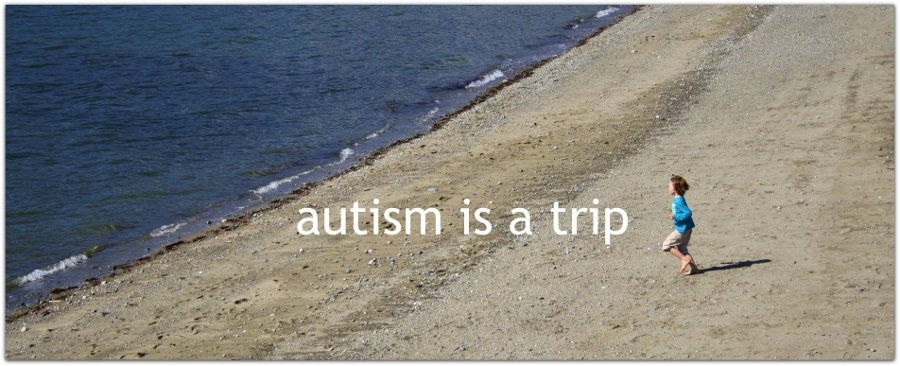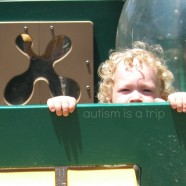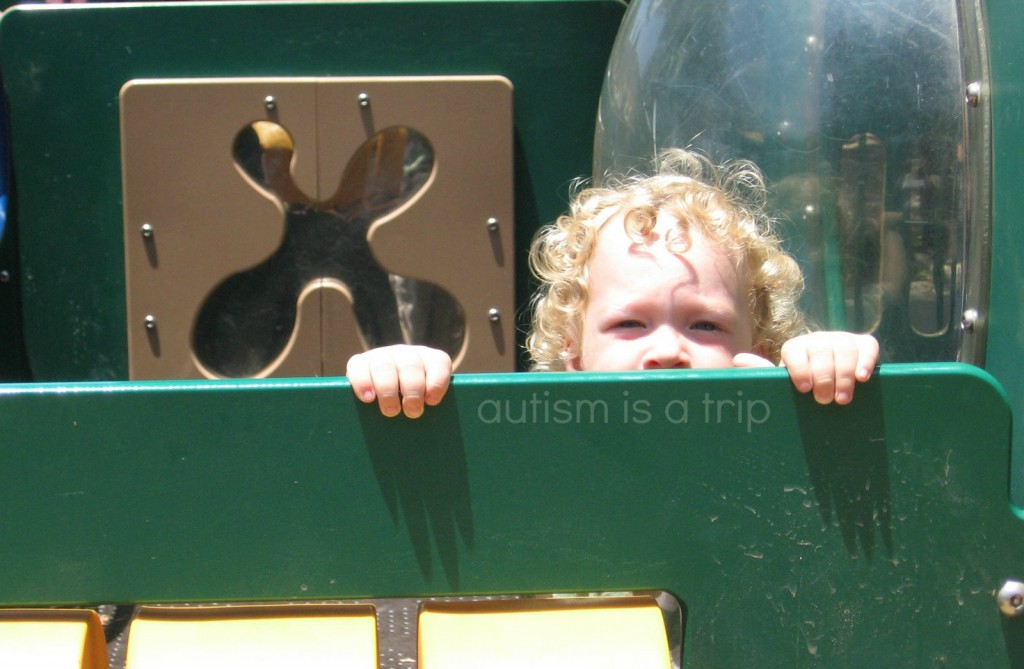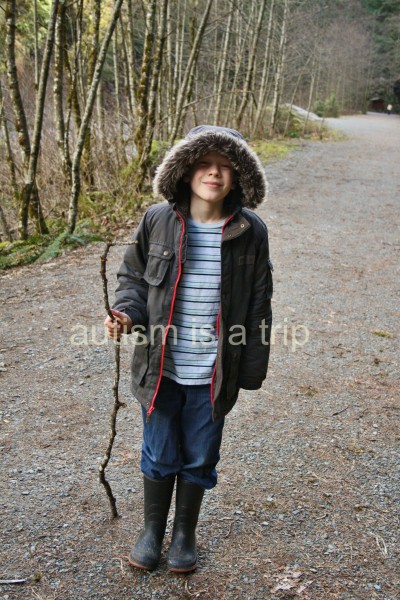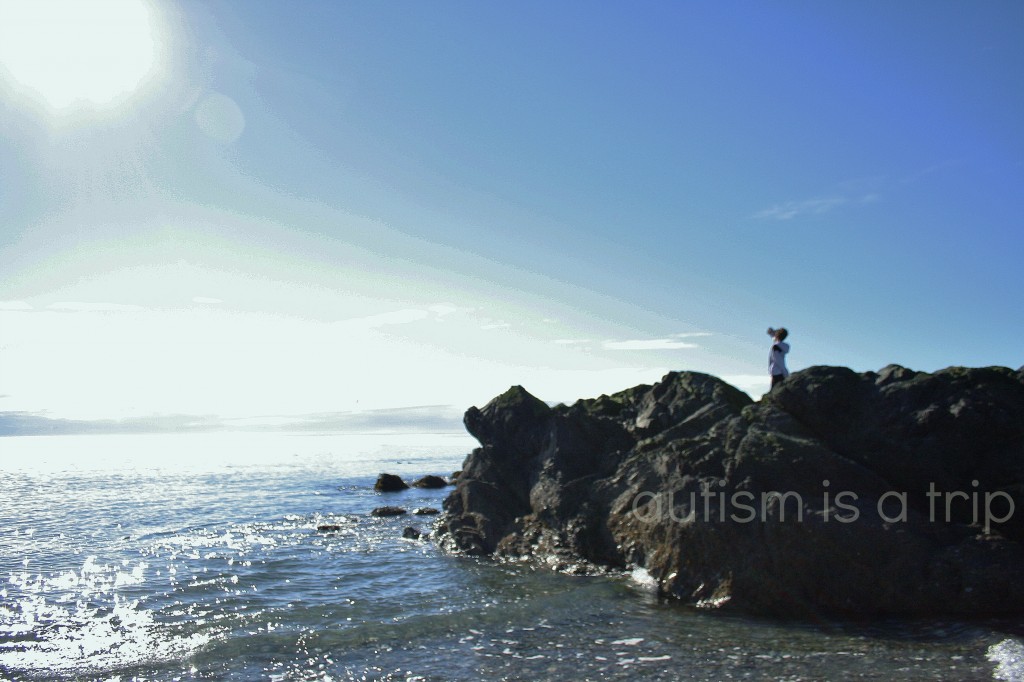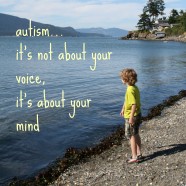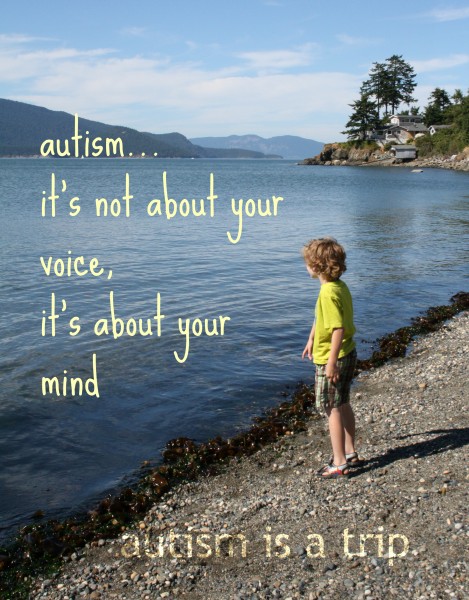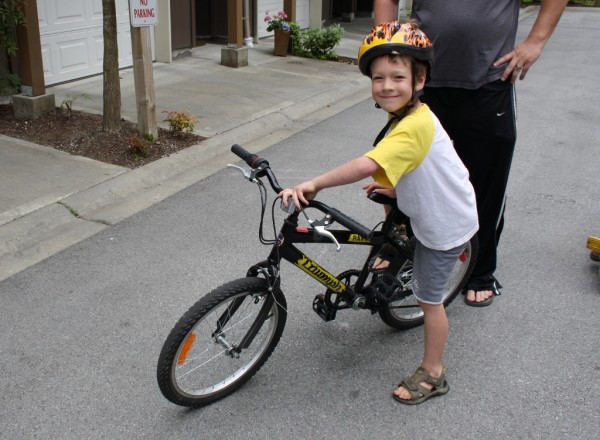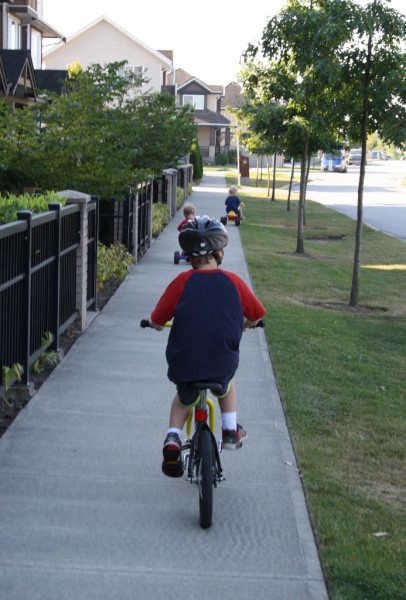Autism in British Columbia: Crisis in Process
My son Jack was born in the United States and raised in Los Angeles until the age of four and a half. Just before he turned two, he entered the California Early Start program for children with a risk of developmental delay or disability. We called for an appointment in August of 2o06, and by the end of September of the same year, he was enrolled in a variety of interventions and therapies.
At age three, he was formally assessed and diagnosed with autism by both the Lanterman Regional Center and the Los Angeles Unified School District (LAUSD). He was transferred to autism-specific supports, where he remained until we moved.
From the time Jack was twenty-two months until he was four and a half, Jack received the following interventions and therapies:
AGE TWO
- Collaborative preschool with typical peers in a clinic-based classroom, three-to-four days a week
- Two hours a week of clinic-based Occupational Therapy
- Two hours a week of home-based Speech Therapy
- Several sessions of Feeding Therapy
- He was also offered full-time preschool, additional Occupational Therapy, Floortime Therapy, and Respite Care, which we did not feel were necessary at the time.
AGE THREE to FOUR
Provided by LAUSD:
- Individualized Education Program (IEP) support
- Collaborative preschool with typical peers in a public school classroom, five days a week
- Full-time Behavioural Intervention Implementation (BII) aide at school
- Two half-hours a week of school-based Speech Therapy
- Two half-hours a week of school-based Occupational Therapy
Provided by Lanterman Regional Centre:
- One hour a week of clinic-based Occupational Therapy
- Twelve hours a week of home-based Applied Behaviour Analysis (ABA)
- Respite Care
- Parent training workshops
We also supplemented his therapies at home, with strategies learned from his providers.
Several of the supports at school and at home were coordinated through the same non-profit organization, so there was continuity in both areas. We felt very confident that our son was receiving every support he needed, and that should he need more, the options were available to us.
We were given choices of providers and schedules, and the ability to change supports and therapies as we saw fit, but we were guided through the process by a social worker at Lanterman (Early Start), and then a caseworker at Lanterman, a support worker at LAUSD, and a coordinator at the non-profit who provided our BII and ABA aides.
It is important to note a couple of things. First, we never saw a bill. Not once. My husband and I signed authorization forms, reports, and time cards, but we were never financially responsible for anything.
Secondly, we were given suggestions and options as to what Jack needed, according to several observations and reports. We were able to give our input, but we were not responsible for creating his treatment plans. We never felt like the burden of figuring out what he required was on us.
Finally, we never saw a pediatrician or medical doctor (other than the diagnosing psychiatrists) for Jack’s autism. In fact, it came as a bit of a surprise to his pediatricians when we told them about his diagnosis. Jack has never had any of the health issues commonly associated with autism, and as it is not required in California, we had no reason to include his doctors in the diagnosing process.
When our family moved to Canada, Jack was in the process of transitioning from preschool to Kindergarten. In Los Angeles, he would have had full-time BII support, and continued with both speech therapy and home-based ABA (he had graduated from clinic-based occupational therapy) for as long as necessary.
I cannot speak to how his support would have waxed or waned over the school years, but I have only good things to say about our experiences up to that point.
I can, however, tell you what happens here in British Columbia.
Once we were settled, we were required to get Jack a new autism diagnosis from a Canadian doctor in order to qualify for provincial autism funding. Government funding is Canada’s answer to autism support, similar to the Regional Center system in California.
First, we had to see a pediatrician, and convince him Jack needed a referral for diagnosis. I was honestly shocked when he balked at giving it to us, even though Jack had already been formally diagnosed in the United States. Twice. The doctor wanted to rule out ADHD (which, it turns out, Jack does have), and Fragile X Syndrome (which he does not), before he would even consider referral. I pushed, though, and he relented.
Next came The Wait. We were told the wait time for assessment would be almost two years, and indeed it was fourteen months before he was seen.
Fourteen months is forever in the life of an autistic child and their family.
It can also be the difference between full- and no-support.
Children assessed with a spectrum disorder in BC under the age of six receive $22,000 a year of funding to pay for their various supports. The family is responsible for deciding which therapies and interventions are necessary, and all of the hows and whens and whos of making them happen. I know how overwhelmed we were in Los Angeles, and we had several agencies overseeing and coordinating everything for us.
Many families in BC are lost and confused as to what is necessary and when, and who to trust to give them good advice. They are expected to become autism experts overnight, and to know what their child needs at any given time.
Once a child on the spectrum reaches age six, the yearly funding drops to a mere $6,000. To cover every single thing the child or young adult needs.
$6,000 doesn’t go very far, in case you’re wondering.
Now consider the child who has been waitlisted until they are six or seven, eight, or older. Those children don’t get retroactive funding; they’re given the same $6,000 every other child over six gets.
$6,000 to sink or swim.
My husband and I often wonder where Jack would be in his development if he hadn’t had such intensive interventions and instead had to wait years to be seen. The difference between the two months it took in Los Angeles and the fourteen months it took in British Columbia is monumental.
It’s a lifetime.
In the first fourteen months of Jack’s therapies, he learned to use his upper body. He learned how to play.
He learned how to talk.
I cannot stress enough how important the first year of Jack’s interventions was in shaping the person he is today. That time was invaluable to him, and to us.
I have met many families of autistic individuals here in BC and have heard a lot of stories. Some wonderful, many concerning. Some downright terrible.
In the Lower Mainland, where we live, there is only one team that assesses and diagnoses autism. One team for a large and rapidly growing population – the fastest growing region in Canada.
Wait times to be seen are so outrageous, families who are financially able resort to paying for their own assessments out of pocket. Even those clinics now have tremendous wait times.
Yes, there are legitimate circumstances where a child may be older before he or she is diagnosed, but for families seeking help for younger children, the situation here can be bleak.
I cannot imagine where Jack would be today without the solid start he got at a very young age.
I cannot imagine the kind of support he would have gotten if we had to decide his plan of action alone, without professional guidance.
I cannot imagine the outcome if we had had serious budget restraints, or had to turn down therapies because we simply could not afford them.
Autistic children in Alberta get up to $60,000 a year for supports through age 18. Why should children in British Columbia not get the same?
Why do children over the age of six get so much less than younger children? Is autism less severe over the age of six?
Why are families left to fend for themselves in a province so well known for caring for its citizens?
It breaks my heart to see even one child go without the therapy and intervention he or she desperately needs. I don’t understand how a province can willingly stifle the potential of certain individuals because of their age or where they live.
It’s just not right.
It’s not Canadian.
It needs to change.
Share this: Twitter | StumbleUpon | Facebook | digg | reddit | eMail Read MoreA Tragedy in BC – Failing The Caregivers
Autism Awareness (ought to be Acceptance) Month is winding down, and unlike April, it will not go out like a lamb. The lion of autism injustice is still roaring, louder than ever.
While people are walking and gathering and fundraising and celebrating the wonders and gifts of autism (which I wholeheartedly support), the dark underbelly is growing. It’s time for us to face it.
Death has become altogether too common in the autism community. Every week or so there’s another story about an individual who has bolted or wandered and not made it home. And every month or so, an autistic individual is harmed or murdered by a caregiver.
The tragedies are too numerous to count, and happening much too often. They are also hitting closer to home – both in proximity and emotion.
Our children are in danger.
Issy Stapleton. Alex Spourdalakis. And now, Robert Robinson.
Last week, British Columbia resident Angie Robinson murdered her 16-year-old autistic son, then took her own life.
It’s easy to automatically blame Angie. How could a mother possibly take the life of her own child? What kind of parent does that?
A desperate parent. A parent who has reached the end of their resources, both physically and mentally. A parent who believes they have absolutely no other answer.
Nobody thinks they could ever get to the point where suicide and murder are a viable option. We all assume if things get dark enough, someone will appear with a light.
No parent, even a parent of a profoundly disabled or autistic child, wants death (I’m assuming the best, of course). Even at the very end of the rope, we are still hanging on, holding out for a glimpse of hope.
But occasionally, the darkness consumes everything, and no light can get through. There is no hope. Or, at least, that’s what a desperate parent believes.
Yes, the violent acts visited on children by their own parents and caregivers is atrocious and unimaginable. No child should ever fear for his or her life in their own home. I am not suggesting that what Kelly or Angie or Alex’s grandmother did are acceptable in any way.
But I do understand them. And I can understand how things could get so desperate for them that they felt they only had one solution.
It all comes down to support. The proverbial village. The village that supports the child needs to support the caregivers and parents, too, and therein lies the rub.
Autism supports vary from country to country, province to provice. There is no standard of practice or care even within a the US or Canada. Children and individuals with autism often need intense, one on one care, either in the home or a residential facility. Not every family is equipped to handle these situations, yet there is often little in the way of respite and support for them.
As far as I can tell, support for caregivers is pretty much nonexistent. If a family member requires placement or full-time care and none is available, what is the caregiver to do? Between a lack of professional support and the overwhelming costs of respite and residential care, it should really be no surprise that parents are losing hope.
There are two victims in these crimes. Two lives lost. Two stories that didn’t have to end this way.
When a desperate parent decides to kill their child and themselves as a way out, the entire autism community has failed.
We have failed the child by not giving them everything they need to live a happy life to best of their ability.
We have also failed the caregiver by not recognizing that a healthy caregiver is essential to a healthy, happy autistic individual.
We cannot expect autistics and their families to survive and thrive if they are constantly at war just to get support.
Any one of us could reach the limit. Or anyone we’ve met. Nobody knows just how much someone can take, and what will be their breaking point. We need wholesale change in the way we support autistic individuals and their caregivers. The reality is if the caregiver is too stressed and is getting no help or relief, the whole family is in potential danger. These horrible stories will continue until something big changes.
Caregivers need to be heard and helped when they reach out. By the time a parent reaches the point of murder and suicide, it’s too late. Families need care and support from the very beginning, not just when things get rough.
Until then, keep your ears and shoulders available for your friends, in real life and on the internet (which is oftentimes who need it the most). Be a friend, be aware of what’s happening. Also, don’t hide your situation from the world. Open up to anyone you think will take you seriously.
And let your local government know how you feel about caregiver support and the lack thereof. Be loud, and be heard.
If the system can’t/won’t help us, we have to help ourselves.
Share this: Twitter | StumbleUpon | Facebook | digg | reddit | eMail Read MoreExtreme Air Park – Hostility, Greed, and Autism
We in the autism community are, sadly, used to hearing about maligned special needs parents and children. It’s become an all-too-common topic in the news and blogs lately. While most of us know or are familiar with some affected persons, it’s rare (at least for me) to have a situation happen right in your own backyard.
Or down the street, in my case.
We live in Langley, British Columbia, just South of Vancouver. From what I’ve experienced in the almost four years we’ve lived here, it’s a really nice community. The people are kind, the schools are good, and children are welcomed almost everywhere. We have parks and playgrounds and activities for families on almost every corner. It’s not Utopia, but it’s a great place to raise a family.
As a child with autism, Jack is welcome with all other children. He has not been excluded from anything he has wanted to do, to our knowledge. He is gaining independence, but he does need accompaniment of his SEA for school activities, and a parent or caregiver for much of everything else.
Kelly Moonie and her son Kyle live in our community. Kyle, like Jack, has autism. I don’t know the Moonie family personally, but I hope their experiences here in Langley have been similar to ours. Most of them, that is.
Recently, Kelly took her son to the Extreme Air Park location here in Langley, an indoor gym of sorts featuring wall-to-wall (and up the wall) trampolines. We’ve been there ourselves, and can attest that it’s a lot of fun. For everyone. We even have a t-shirt.
Kyle was accompanied to EAP with his caregiver, who is charged with assisting him and ensuring his safety. Kellie was told she needed to pay the full price for the caregiver to enter.
Businesses that cater to children often admit a caregiver for free, or at least at a reduced price. Here in Canada, we have a program called Access 2 Entertainment, that addresses the issue directly.
From their website:
Launched in December of 2004, the Access 2 Entertainment program seeks to offer more opportunities for people with disabilities to participate in recreational activities with an attendant, without added financial burden. It is also designed to raise awareness and help businesses provide quality customer service to customers with disabilities.
It is vitally important that special needs children enjoy as much of a “normal” life as possible, and allowing caregivers to accompany them is a major part of that.
After their visit, Kellie sent an email to EAP, explaining this issue, and suggesting they change their policies. She received an email in return, assuring her there would be no such change.
Kellie answered the email, pressing them further on the issue.
The response she got was much less polite, and much more hostile.
From the CBC article telling their story:
“Our system is computerized. I am not lying to you. We know how many people are on the floor at any given time. But what would you know. C U next Tuesday,” replied (Michael Marti, on behalf of ) Extreme Air Park.
Yes, you read that right. C U next Tuesday.
With apologies for the vulgarity, C-U-N-T.
I don’t even know where to begin with this. Calling your customers names is never good business, but in the case of a special needs parent trying to enlighten you on a very important issue?
Firestorm.
Extreme Air Park is a bouncing wonderland, almost made for autistic kids. Maybe that’s the problem. They don’t want autistics. Perhaps I’m wrong, but that’s definitely the message they’re sending. By inhibiting equal access, the Extreme Air Parks are making it very clear that they don’t care for special needs individuals in their establishments. And if those persons wish to patronize the place anyway, they’ll pay for the privilege.
Charging a caregiver full price when they are only there to facilitate the individual who needs them – similar to a seeing-eye dog, if you will – is just plain greedy.
Special needs parents and autistics have enough struggles and obstacles in life already without ignorant businesses piling on.
Even if you do not have a special needs child, the way the company handled this is outrageous and beyond the pale. True, it may have simply been an unprofessional employee taking matters into their own hands, but when you’re speaking for an entire company, you should know better. I have no doubt that any parent attempting to communicate with EAP would have met with similar hostility and derision.
I could go on and on and rant and rave, but I won’t.
Instead, I’ll let you do it. Please.
Please take a moment to tell Extreme Air Parks how you feel about their policies, and the way they treated Kelly Moonie.
Below are the contact numbers for all of the Extreme Air Parks in Canada:
Richmond 604-244-5867
Langley 604-888-8616
Calgary 403-265-2733
Edmonton 780-479-7790
They are also on Twitter: @Extreme_AirPark
It would appear they’ve deactivated their Facebook account, but you can send them an email directly on their website here.
On behalf of Kelly and Kyle, Jack, the children of Langley, and special needs families everywhere, I urge you to take a stand.
I am.
But first, I’m going to go throw away that t-shirt.
Share this: Twitter | StumbleUpon | Facebook | digg | reddit | eMail Read MoreAutism: Don’t Ask, Don’t Tell?
I am very fortunate to have a vocal readership. I receive a lot of comments, messages, and emails via my Facebook page, here, and on redOrbit. Some are of the “me, too!” variety, many are requesting advice, others are autism parents reaching out to an understanding ear.
Then there are the rest. The criticisms, the angry voices opposed to what I’m saying, the ones I’m just not sure about. The ones that make me shake my head and say “wtf?”
Yes, I actually say “wtf.” Clearly, I’m a fourteen-year-old girl trapped in this forty-something brain.
Normally I shrug them off. Occasionally I address them, when I feel like the writer is completely out of line or misconstrued my intent. More often I simply thank them for taking the time to read my work. It’s always nice to be read, whether or not it’s appreciated.
This week I received an email, in response to this post, that not only got my attention, it really got my ire up. Instead of merely ignoring or answering the email, I thought it would be better played out here, where I can share it with a wider audience. I honestly believe this is a subject that should be talked about.
Loudly.
Here is the email I received:
Dear Wendy,
I am assuming your story ‘Dear Son, You Have Autism‘ is real.
I believe you should not label your son as autistic, definitely do not tell him about. He looks to me, based on your story, as quite normal.
Our understanding of psychology and the underlying chemistry is yet in the infancy.
We are ignoring the negative effects which the ‘modern ‘labelling’ may have on self esteem and confidence of children and young people. I am in fact terrified seeing how easily Educators and Psychologists (in fact ignorant in Chemistry, Biology, Medicine and many other relevant Sciences) are labelling our kids with the whole spectrum of disorders.
This also happened almost 40 years ago to my son, labelled (sic) as hypersensitive, almost abnormal – the label ‘autistic’ has (sic) not been yet in use.
He finished his tertiary education brilliantly, and is since years an IT expert co-working with a team of researchers on mysteries of our brain.
SXXXXX
ps. I worked my whole life as an academic, educator and researcher and remain very critical of many of the modern classification – labelling (sic) methodologies. In particular terrifying is that these people are ignoring huge probability of being wrong.
So many things to say here. Where should I begin? I think I’ll go through it line by line.
I am assuming your story ‘Dear Son, You Have Autism’ is real.
If you had taken the time to look at my website, you’d see that yes, in fact, our story is indeed true. I don’t write fiction.
I believe you should not label your son as autistic, definitely do not tell him about. He looks to me, based on your story, as quite normal.
Tell me, how, exactly, does an autistic individual look? I’m guessing you don’t look ignorant, yet here we are.
What’s in a label? You call yourself an “academic,” and that’s a label. Some labels are pretty awesome. “Nobel Prize Winner.” “President.” “Canadian.” Why not call a spade a spade?
The larger issue here is the statement that my son looks, to you, “quite normal.” What, pray tell, is “normal?” Should I tell my son that since he can “pass” as normal, that he ought to? That he must hide his true identity, like the Jews in WWII, light-skinned blacks in the 1950’s and 1960’s and gay teenagers today?
That opinion puts you in pretty bad company. To insist that my child pretend he is something that he is not for your comfort or your ignorance or his safety makes you no better than the Klan in my book.
Harsh words, yes, but so is telling me to hide my child’s true self.
I have no more intention of keeping Jack’s autism from him than I have of keeping his place of birth or Scottish ancestory a secret.
Jack was born in Indianapolis. He is a direct descendent of William Wallace. And he has autism.
To say that my son should hide his autism like something to be ashamed of is absurd, ignorant, and discriminatory.
And I will not do it.
Our understanding of psychology and the underlying chemistry is yet in the infancy.
We are ignoring the negative effects which the ‘modern ‘labelling’ (sic) may have on self esteem and confidence of children and young people. I am in fact terrified seeing how easily Educators and Psychologists (in fact ignorant in Chemistry, Biology, Medicine and many other relevant Sciences) are labelling (sic) our kids with the whole spectrum of disorders.
This is true. It would also appear that you do not have a firm grasp on it yourself, or you would understand that a neurological variance such as autism is not something to be “terrified” of. Your statement that telling autistics that they are, in fact, autistic, will crush their self esteem and confidence is the exact reason we should. The opinion that someone with a difference should think of themselves as “less than” is antiquated at the very least.
What is that telling my son? That he should be ashamed of who he is? That he should wonder for the rest of his life why he doesn’t seem to think the same way as his peers? Why, when telling him the truth will set him free of wonder and worry?
I want my son, and all people with autism, to be proud of themselves. To be confident. To know that there are people out there, like yourself, who fear what they do not know and understand. Autistic individuals face enough difficulty and hardships in their daily lives, they shouldn’t have to add shame and fear to the mix.
We have evolved as a people. We are better than that.
This also happened almost 40 years ago to my son, labelled (sic) as hypersensitive, almost abnormal – the label ‘autistic’ has not been yet in use.
He finished his tertiary education brilliantly, and is since years an IT expert co-working with a team of researchers on mysteries of our brain.
At this point I would like to point out that you appear to have autism and ADHD/ADD conflated. Autism as a term has been around since the early 1900’s, and ADHD/ADD are not spectrum disorders. I am around the same age as your son, and I, too, was diagnosed (not “labeled”) with hyperkinesis, or being “hypersensitive” as a young child. I am not ashamed of it, nor do I believe it was an incorrect diagnosis.
You also seem to be assuming that we have not had our child assessed and diagnosed with professionals who know anything about biology, chemistry, medicine or neuroscience. You claim to be an academic, yet how much of these do you know? My child has been seen and assessed my no less than twenty professionals, including specialists in brain function, speech and early speech acquisition, sensory processing disorders (including fine and gross motor function), psychiatry, and numerous other disciplines.
They all agree: my child is incredibly intelligent, and definitely autistic.
I am pleased that your son finished his education brilliantly, yet saddened by the sense that you feel the need to justify him. He did not accomplish what he’s done in spite of who he is. He has triumphed because of who he is.
And that, my friend, is no less than what I want for my son.
So, I end this on a lighter note than when I began. I beseech you to keep your mind open to differences, and understand that children like mine may very well be the future.
Certainly, hiding in shadows and telling lies is no way to live anymore. History has told that story time and again.
I will leave you with the statement my son Jack has about having autism. This is his story, after all.
“Autism is not about your voice. It’s about your mind.”
And that’s all we have to say about that.
A version of this post originally appeared on redOrbit blogs.
Share this: Twitter | StumbleUpon | Facebook | digg | reddit | eMail Read More